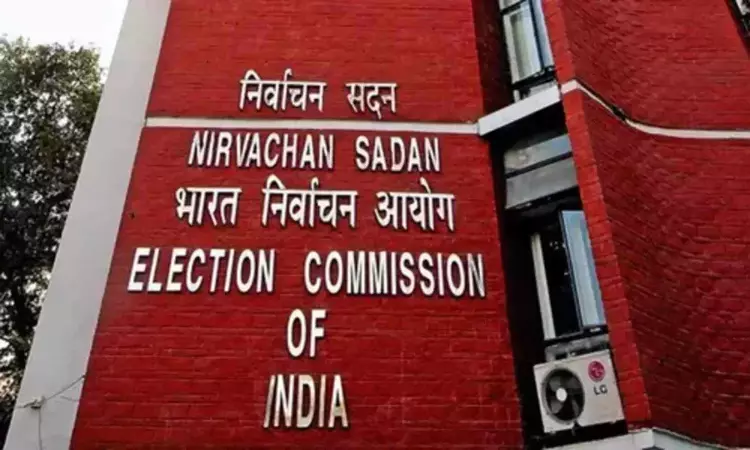Himachal to focus on 414 polling stations with poor turnout in 2019 polls
After a prolonged four-year pause, the vibrant campus of Jawaharlal Nehru University (JNU) in New Delhi has once again come alive with the fervour of student politics as the JNUSU elections kick-started on Friday

Election Commission of India (IANS)
NEW DELHI: After a prolonged four-year pause, the vibrant campus of Jawaharlal Nehru University (JNU) in New Delhi has once again come alive with the fervour of student politics as the JNUSU elections kick-started on Friday.
A senior police official said that large numbers of police personnel have been deployed outside the JNU campus to maintain the law and order situation in the area.
With a staggering count of over 7,700 registered electors poised to exercise their voting rights, anticipation and excitement loom large in the air. Seventeen meticulously arranged polling booths are dispersed across various centres of studies, offering students a convenient avenue to cast their votes.
In a commendable move towards inclusivity, special provisions have been made for visually impaired students through a digital voting system.
As the electoral machinery chugs into action, the campus finds itself under a vigilant watch with heavy police deployment aimed at ensuring the maintenance of law and order throughout the electoral process.
The polling for the first phase began two hours late while the second phase polls will continue till 6 p.m. on Friday, said the students.
Post the polling, all eyes will be set on the counting process set to commence at 9 pm onwards, with the results slated for declaration on Sunday.
Meanwhile, the JNU administration appealed to the students to refrain from vitiating the peaceful atmosphere of the campus and facilitate a peaceful JNUSU election.
“It has come to the notice that some students have allegedly raised certain motivated slogans during the event of the Presidential debate of JNUSU election held on 21 March 2024, which are totally unacceptable as it may hurt feelings and sentiments of various sections of the JNU community,” said the varsity administration.
“It is pertinent to mention that the Model Code of Conduct is in place and that the entire electoral process is being monitored by the High Court-appointed Special Observer. The administration has taken cognisance of the matter and the security branch has been instructed by the Vice Chancellor to immediately look into the matter and submit its report,” it said.
“The Administration urges all sections of the JNU community to refrain from vitiating the peaceful atmosphere of the campus and facilitate a peaceful JNUSU election. Security Branch should immediately be informed/contacted in case anyone is found to be indulging in any unauthorised activity,” it added.
The electoral battleground sees a diverse array of candidates vying for different positions, reflecting the multifaceted tapestry of ideologies prevalent on the campus.
A total of 19 contenders vie for the prestigious seats on the JNUSU central panel, with an additional 42 candidates in the fray for school councillor positions. Among them, eight aspirants lock horns in a bid for the coveted position of president.
The RSS-affiliated Akhil Bharatiya Vidyarthi Parishad (ABVP) puts forward its slate of candidates, with Umesh Chandra Ajmeera leading the charge for the President's seat, backed by a compelling narrative of resilience stemming from personal tragedies.
The political landscape witnesses a fierce contest between ideological factions, with the United Left alliance, comprising prominent student bodies like the All India Students' Association (AISA), Democratic Students' Federation (DSF), Students' Federation of India (SFI), and the All India Students' Federation (AISF), fielding their candidates for key positions.



